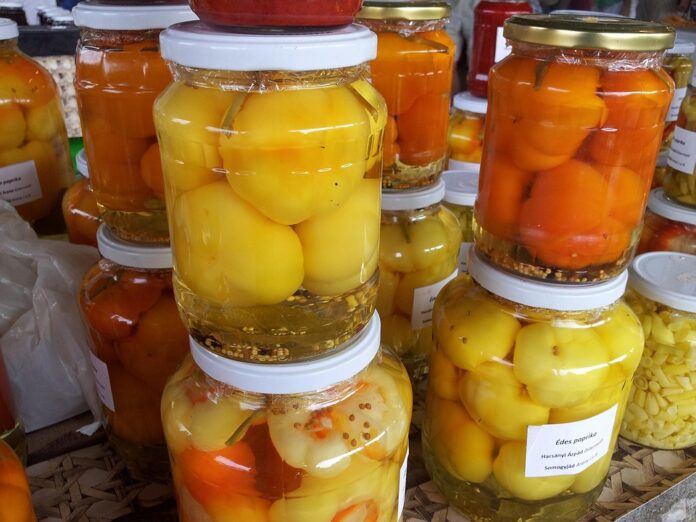Top 10 Industrial Applications of Vinegar in the Food Sector
Vinegar, a versatile and widely used ingredient in the food industry, has numerous industrial applications that contribute to the flavor, preservation, and quality of various food products. In this report, we will explore the top 10 industrial applications of vinegar in the food sector, highlighting its importance and impact on the industry.
1. Pickling and Fermentation
One of the most common industrial applications of vinegar in the food sector is pickling and fermentation. Vinegar is used as a key ingredient in pickling solutions to preserve and flavor vegetables, fruits, and other food products. The acetic acid in vinegar acts as a natural preservative, inhibiting the growth of harmful bacteria and extending the shelf life of pickled foods.
2. Salad Dressings and Sauces
Vinegar is a fundamental component of salad dressings and sauces, adding tanginess and depth of flavor to a variety of dishes. Its acidic nature helps balance out the flavors of other ingredients, creating a harmonious blend that enhances the overall taste of the dish. Popular salad dressings like vinaigrettes and marinades rely heavily on vinegar for their characteristic zing.
3. Baking and Cooking
In baking and cooking, vinegar serves multiple purposes, from tenderizing meat and enhancing leavening in baked goods to adding acidity to marinades and sauces. It also plays a crucial role in making certain dishes like buttermilk pancakes and quick breads, where its acidity reacts with baking soda to create carbon dioxide gas, resulting in a light and fluffy texture.
4. Preservatives and Flavor Enhancers
Vinegar is commonly used as a natural preservative and flavor enhancer in a wide range of food products, including condiments, canned goods, and processed meats. Its antimicrobial properties help inhibit the growth of spoilage-causing microorganisms, extending the shelf life of perishable foods. Additionally, vinegar’s acidic taste can enhance the overall flavor profile of foods, making them more appealing to consumers.
5. Cleaning and Sanitizing
Beyond its culinary applications, vinegar is also used in the food industry for cleaning and sanitizing purposes. Its acidic nature makes it an effective natural cleaner for removing grease, grime, and odors from kitchen surfaces, equipment, and utensils. Vinegar’s antimicrobial properties also make it a popular choice for sanitizing food preparation areas and equipment, helping maintain a hygienic environment in food processing facilities.
6. Meat Tenderization
Vinegar is often used as a meat tenderizer in the food industry, particularly for tougher cuts of meat that require additional processing to improve their texture and flavor. The acetic acid in vinegar helps break down the connective tissues in meat, making it more tender and succulent when cooked. This process is commonly used in marinating and brining applications to enhance the overall quality of meat products.
7. Flavor Infusion and Marination
Marinating meat, poultry, and seafood in vinegar-based solutions is a popular technique in the food industry to infuse flavor, tenderize proteins, and improve moisture retention during cooking. Vinegar’s acidity helps enhance the absorption of seasonings and spices into the food, resulting in a more flavorful and juicy end product. It is also used in brining applications to impart flavor and moisture to various cuts of meat.
8. Pickle Juice Drinks
In recent years, there has been a growing trend of using pickle juice, which is essentially vinegar-based brine, as a functional beverage in the food sector. Pickle juice drinks are marketed as a hydrating and electrolyte-rich alternative to sports drinks, with some consumers touting their potential health benefits, such as aiding digestion and replenishing nutrients. This innovative application of vinegar showcases its versatility and adaptability in the ever-evolving food and beverage industry.
9. Fruit and Vegetable Preservation
Vinegar is commonly used in the food industry for preserving fruits and vegetables, either through pickling or canning processes. The acidic environment created by vinegar helps inhibit the growth of spoilage-causing microorganisms, ensuring the long-term preservation of perishable produce. This application is particularly useful for extending the shelf life of seasonal fruits and vegetables, allowing them to be enjoyed year-round.
10. Flavoring Agents and Condiments
Lastly, vinegar is widely used as a flavoring agent and condiment in the food sector, adding a tangy and acidic kick to a variety of dishes and products. From hot sauces and chutneys to mustards and relishes, vinegar plays a crucial role in enhancing the taste and complexity of condiments. Its versatility and unique flavor profile make it a staple ingredient in many culinary traditions around the world.
In conclusion, vinegar is a versatile and indispensable ingredient in the food industry, with a wide range of industrial applications that contribute to the flavor, preservation, and quality of various food products. From pickling and fermentation to salad dressings and sauces, vinegar’s acidic properties and unique flavor profile make it a valuable asset for food manufacturers and chefs alike. As consumer preferences and culinary trends continue to evolve, vinegar will undoubtedly remain a key ingredient in the ever-changing landscape of the food sector.




